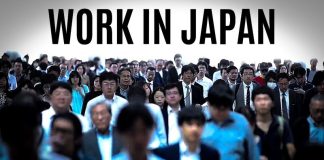Competition for young talent is becoming increasingly stiff as young people are entering the workforce with greater expectations.
With Singapore boasting the title of the world’s top maritime capital, it’s little wonder that many maritime companies are looking to our nation for next-generation leaders to take their businesses forward. Yet, the industry faces challenges in getting millennials onboard. Competing against a shrinking local workforce, attractive employers from the youthful tech giants, and a misconception of the maritime industry as an old-school business, the industry has recognised a need to strengthen recruitment efforts – doing so by banding together to help the public understand just how vibrant, dynamic and progressive maritime can be.
The Maritime Singapore Connect (MSC) Office is a prime example of our efforts as an industry. A national initiative set up under the Singapore Maritime Foundation (SMF), the MSC Office is a central node connecting maritime employers, industry associations, schools and government agencies on all things maritime with students and jobseekers. Jurong Port (JP) has been a keen partner of the MSC Office since its inception, from supporting its profiling efforts to participating in outreach events such as the annual MSC Maritime Careers Workshop, which draws more than a hundred prospective jobseekers from both maritime and non-maritime backgrounds to the wide gamut of careers that maritime employers offer. But the war for talent is far from over. Competition for young talent is becoming increasingly stiff, while youths are entering the workforce with greater expectations, compared to generations before.
Here are three approaches which I have found resonate well with our next-generation of achievers.
Build a close-knit culture
Companies must build a close-knit culture where employees feel that their views matter – regardless of where they stand in a traditional hierarchy. This means involving, listening, and respecting all views. For a start, ensure that employees are always up to speed on management’s intentions and plans. JP upped the frequency of our company Townhalls significantly and included an open “Ask SLT” (“Ask Senior Leadership Team”) segment.
This segment has emerged as a Townhall highlight, with employee questions on a range of topics on JP’s strategy, our customer engagement plans and even our internal shuttle bus schedules!
We also try to foster a socially cohesive, collegiate environment at JP by introducing a house system similar to those in schools. In response to the feedback that our people would like to get to know their colleagues across JP’s various divisions, functions and hierarchy, this idea suggested by our own young talents aim to foster collaboration and friendships across the organisation.
Reward based on merit
Young employees work fast, and also expect to climb fast in their career. The best and brightest will likely move on if they are not progressing or taking on exciting roles. At JP, we assure our people that promotions are evaluated on the basis of individual merit. To ensure transparency, we set out the management competencies relevant to each managerial and leadership grade, against which promotions are assessed. Today, some of our departments are headed by brilliant young minds. Well-deserving employees may receive year-on-year and even double-grade promotions. These demonstrate the absence of glass ceilings in JP and our focus on meritocracy.
Focus on employer branding
As a large and diverse sector, we need multidisciplinary talent with a wide range of skillsets. Yet, many are unfamiliar with the maritime industry as it is largely business-to-business focused. To attract top tier talents, we must enhance our employer branding through outreach initiatives, traditional and social media. Identity building to enhance a sense of belonging starts from within. We started a series of employee interest stories, featuring those who have upgraded themselves technically and professionally.
Successes are also celebrated together, such as our winning of the Port/Terminal Operator of the Year award at the Lloyd’s List Asia Pacific Awards 2018. Such successes bolster our employees’ sense of identity and give meaning and purpose to their work, which is particularly important for millennials.
With the maritime industry targeting a $4.5 billion increase in value-add and 5,000 new jobs by 2025, we will need a young and driven workforce to take us further. Millennial employees have much to offer in creativity, energy, and passion. If we can skilfully harness their potential, they will no doubt steer us to greater heights.
Authored by Michael Goh,
Chief Corporate Services Officer of Jurong Port.




















